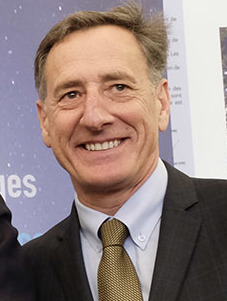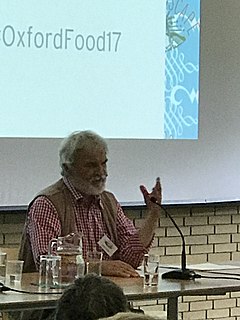Top 39 Gmos Quotes & Sayings
Explore popular Gmos quotes.
Last updated on April 14, 2025.
There is no reason why a company like Monsanto, for example, that is pushing GMOs, cannot go to Kenya, partner with the university, partner with the research institutions, and try to promote - in a responsible way - advanced techniques to help farmers. But this should be done in such a way that the farmers' livelihoods are not undermined because the government is irresponsible or careless, or because it is compromised.
To argue that we need some technology in order to produce food to tackle hunger is completely blind to the facts on the ground. Actually, what we need is the exact opposite of what GMOs give us. We have to empower farmers to grow food for themselves and plant and grow their own seeds and use practices to deal with weeds and the need for fertility, not from purchased products like a seed or a chemical, but from their own farms, from their own knowledge and skill sets.
The World Health Organization recently concluded that glyphosate, the main ingredient in the most-used herbicide on GMOs, is "possibly carcinogenic to humans." What's even scarier is that more than 3,200 elementary schools are within 1,000 feet of genetically modified corn or soybean fields. Drift is a very real thing in agricultural communities, so the proximity of these toxic substances to children is terrifying.
Because we aren't certain about the effects of GMOs, we must consider one of the guiding principles in science, the precautionary principle. Under this principle, if a policy or action could harm human health or the environment, we must not proceed until we know for sure what the impact will be. And it is up to those proposing the action or policy to prove that it is not harmful.
Because there are so many factors when considering the potential impacts of GMOs on our health and environment, we wanted to make a film that could unpack complex subject matter, while taking the audience on an entertaining ride. It is a very powerful tool because it allows viewers to understand the nature of these very complicated issues in a digestible format, and then hopefully engage in a dialogue about them in their respective homes and communities.
I have been intimately involved in the techniques of genetic modification as a scientist since GMOs were first conceived. In that time, hundreds of studies and tests have been done on GMO safety - and we've seen no scientific evidence that GMOs are inherently more dangerous than crops produced by traditional plant breeding.
The Transatlantic and Transpacific Trade and Investment Partnerships have nothing to do with free trade. 'Free trade' is used as a disguise to hide the power these agreements give to corporations to use lawsuits to overturn sovereign laws of nations that regulate pollution, food safety, GMOs, and minimum wages.
The fact is, some of the most respected scientific bodies in the world, including Codex Alimentarius (jointly run by the World Health Organization and the Food and Agricultural Organization of the United Nations), the American Medical Association, the British Medical Association, and the American Public Health Association, have stated that more research needs to be done on GMOs through premarket safety assessments before we can truthfully determine their safety.
Genetically modified organism (GMO) foods are feared and hated by environmentalists and the public alike. Yet the scientific assessment of GMOs is remarkably different. Every major scientific evaluation of GMO technology has concluded that GMOs are safe for human consumption and are a benefit to the environment.
Fur is a contentious issue. Meat is a contentious issue. GMOs are a contentious issue. I think this whole thing going on about whether or not products should be labeled if they have GMOs in them - I, as a consumer, would like to know if I'm eating GMO food. If I choose to buy it then it's my choice.
GMOs are linked to digestive problems, among other things. Antibiotics and growth hormone are other additives being excessively pumped into the animals we are eating, which means we're then consuming these excess antibiotics and hormones. And some processed foods actually contain toxic chemicals, often used to prevent spoilage and enhance flavor.
The present Luddism over genetic engineering may die a natural death as the computer-illiterate generation is superseded.... I fear that, if the green movement's high-amplitude warnings over GMOs turn out to be empty, people will be dangerously disinclined to listen to other and more serious warnings.
























